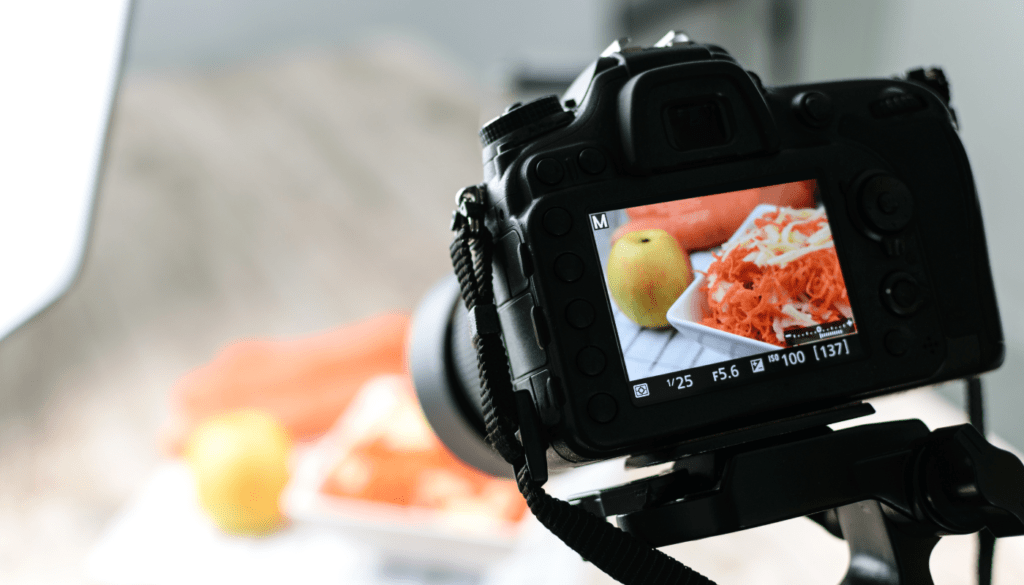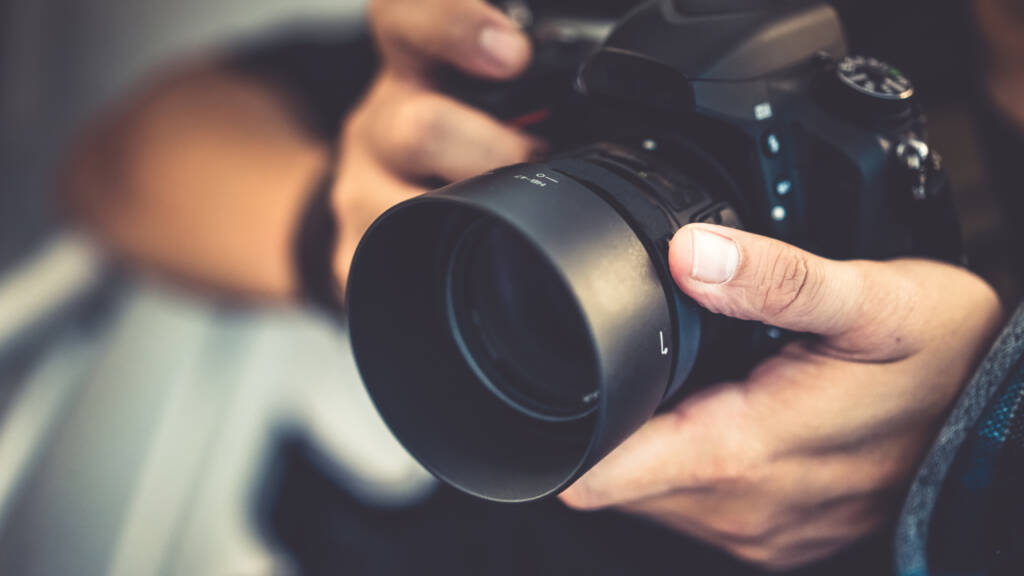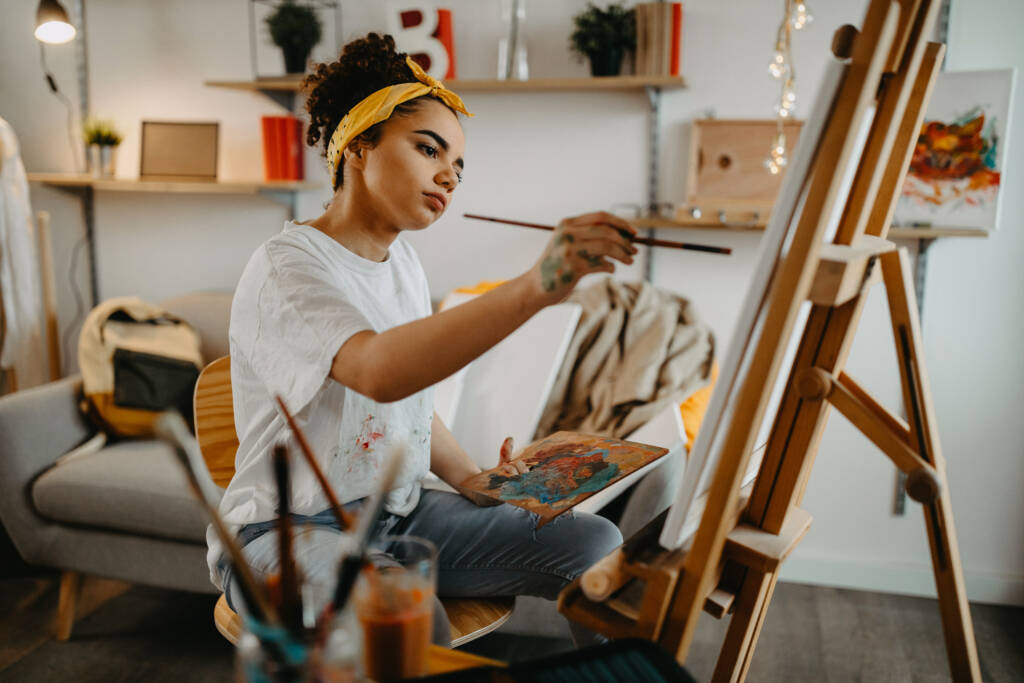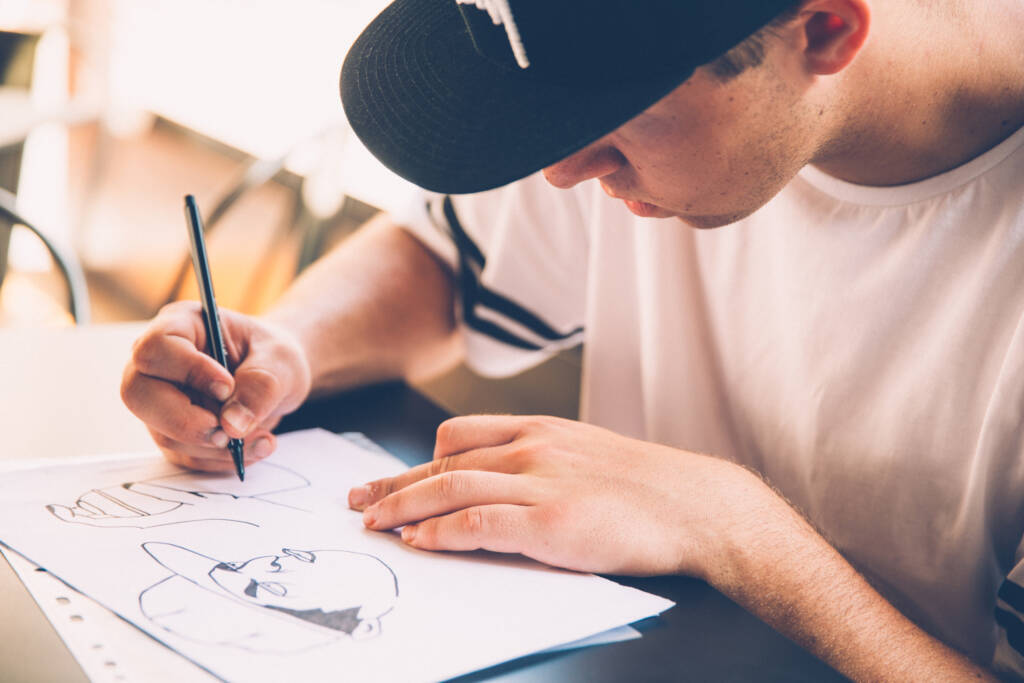
Digital Photography 1

Projects allow students to demonstrate competence and understanding of concepts and skills by completing a career-related task. For example, the assignment might be to create a mural, a package design, a speech, a film review, or a movie set – you name it! These creative projects are about applying your learning acquired through in-depth research to real-world career tasks.
Each competency will be addressed through a project that is based on a real-life career task. Here are the careers you will explore in Digital Photography 1 Projects: Art Director, Real Estate Agent, Advertising Manager, and Journalist.
Please also review the competency statements to learn more about the major topics and concepts covered in this offering.
Note: A digital camera is recommended. A cell phone camera can be used with an app that allows you to adjust the shutter speed, aperture and ISO.
Projects
Art Director
You will take on the role of an art director for a magazine tasked with creating a portfolio of portrait photos that include a variety of exposures and compositions.
Real Estate Agent
You will take on the role of a real estate agent, tasked with creating a portfolio of photos of land that could potentially be for sale.
Advertising Manager
You will take on the role of an advertising manager, tasked with taking photos of various products to persuade consumers to buy your products.
Newspaper Editor
You will take on the role of a journalist for a local newspaper, tasked with creating a series of documentary photographs that visually tells the story of your town.
Competencies
Portrait Photography
Students will demonstrate an understanding of portrait photography by explaining the use of the exposure triangle, analyzing composition in portrait photography and creating portrait photos that depict emotion.
Landscape Photography
Students will demonstrate an understanding of landscape photography by explaining the use of natural light, analyzing composition in landscape photography, and creating landscape photographs that depict a mood.
Product Photography
Students will demonstrate an understanding of product photography by explaining the use of artificial light, analyzing composition in product photography and creating product photographs designed to entice consumers.
Documentary Photography
Students will demonstrate an understanding of documentary photography by explaining storytelling through photography, evaluating composition in documentary photographs, and creating documentary photographs.
Experiences allow you to explore a career field you’re curious about while mastering competencies for school credit. Through experiential learning, you will learn skills and apply them to tasks you would complete as part of a career rather than completing traditional assessments like essays or tests. During your Experience, you’ll work with a professional in the field to support your learning whom we call a “mentor.” You’ll earn a badge for your accomplishments to share on social media and higher education platforms, or with colleges, potential employers, peers, and colleagues to display your qualifications.
Here’s how Experiences work:
- Each competency you work on is addressed through a separate deliverable predetermined by you and your instructor.
- Guided learning for each module consists of research and/or work with a professional in the field. Your instructor will coach you through this process.
- Each module culminates in a final demonstration of understanding, which includes a deliverable and a discussion-based assessment with your instructor.
- Here’s an example:
Let’s say you’re curious about a career in healthcare. You decide you’d like to learn about this career area, make a professional connection, earn a badge, and meet competencies for your 9th-grade English requirement. While enrolled in English 1 Experiences, you conduct research to better understand language and structure in writing. Then you may work with an Occupational Therapist to help apply your writing skills to the creation of an informational video about adaptive equipment for patients. The video aims to advise family members of patients regarding the use of accommodations and equipment to help patients perform daily tasks. Now you’ve earned the Language and Structure in Writing competency! This is just one example of the many ways Experiences can bridge competencies to careers.
Obtaining a Mentor: Prior to enrollment, please have an idea for a mentor in mind. We have partnered with hundreds of mentors you can work with during your Experience, who you can find in our Career Mentor Catalog here. Or, you may consult with our counseling department by emailing [email protected] for help in identifying one.
*A parent/guardian permission form and background check of the mentor are both required to work with mentors without parental supervision.
Competencies
Portrait Photography
Students will demonstrate an understanding of portrait photography by explaining the use of the exposure triangle, analyzing composition in portrait photography and creating portrait photos that depict emotion.
Landscape Photography
Students will demonstrate an understanding of landscape photography by explaining the use of natural light, analyzing composition in landscape photography, and creating landscape photographs that depict a mood.
Product Photography
Students will demonstrate an understanding of product photography by explaining the use of artificial light, analyzing composition in product photography and creating product photographs designed to entice consumers.
Documentary Photography
Students will demonstrate an understanding of documentary photography by explaining storytelling through photography, evaluating composition in documentary photographs, and creating documentary photographs.

